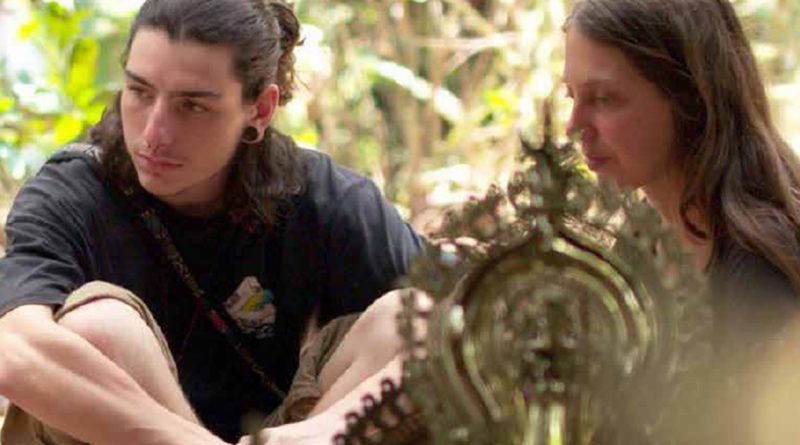Pristine Villages Beckon Tourists
– P. A. Mohamed Riyas
Minister for Public Works and Tourism
Kerala fosters rural tourism Development
Indeed, slow tourism, experiential tourism, and activity-based tourism; the buzzwords in the realm of international tourism; are all tight-knit with rural tourism. As the global population is migrating faster to the urban regions, the quest for experiencing village shall also remain significant in the years to come. A report by the UN reminds us that 68 per cent of the global population will live in urban areas by 2050, and they shall contribute 85 per cent of global economic output. The more urbanization occurs, the more the scope for promoting village tourism. Although with high socio-economic standards, Kerala retains pristine village, which is untouched by the global wave of modernization and a nauseating makeover of urban sophistication. With pristine villages and a unique traditional lifestyle, this picturesque land is ideal for rural tourism. It’s already a prominent tourism segment in the state, and steps are being taken to promote it to the next level.
Village tourism, at the global level, is being envisaged by UNWTO as a form of tourism activity in which the visitor’s experience is related to a wide range of products generally linked to nature-based activities, agriculture, rural lifestyle/culture, angling and sightseeing, and the activities take place in non-urban (rural) areas with low population density, landscape and land-use dominated by agriculture and forestry, and with traditional social structure and lifestyle. Indeed Village tourism is a sustainable form of tourism that aims to promote and develop tourism activities in village areas, encompassing rural villages, farms, and natural landscapes. Tourists can get genuine and exceptional experiences while endorsing sustainable tourism practices and supporting local communities simultaneously. Across the globe, village tourism is a prominent economic activity, especially in major international destination countries like Italy, Spain, the USA, and Canada. While being considered an ideal tool for poverty alleviation in some countries, some other regions identified village tourism as essential for socio-economic growth in the non-urban regions. Rural tourism in some regions is linked to nature-based and adventure tourism.
The rise of village tourism is often correlated to the increasing quest for experiencing distinctive and genuine experiences, coupled with the intention to endorse sustainable tourism practices and support local communities. It is seen in diverse forms like Agri tourism, plantation tourism, village side tourism, farm tourism, etc., all derivatives of village tourism. UNWTO also specifies that it has “a high potential to stimulate local economic growth and social change because of its complementarity with other economic activities, its contribution to GDP and job creation, and its capacity to promote the dispersal of demand in time (fight seasonality) and along a wider territory.” Significant economic benefits are there from village tourism as it can generate revenue for local communities through various services such as lodging, food, transportation, and guided tours, and employment opportunities for locals, especially in industries such as hospitality, handicrafts, and community-based tourism enterprises. Moreover, there is immense potential for creating additional livelihood opportunities for local residents. Having an inimitable way of life with indigenous traditions, customs, and folk culture; along with unrivaled natural beauty; the state offers an ideal platform for village tourism.
As the human line in the world, especially in the urban regions, experiences pace in every aspect, life in the villages of Kerala moves slowly with uniqueness around. Ethnicity and indigenousness of the communities vary from place to place, and that sets the one-off platform for experiencing the authentic features of scenic countryside. The panoramic view of the long-stretched paddy fields, dark green plantations, hills and valleys, and the network of rivers, rivulets, and lakes is indeed alluring for anyone. Boating, Canoe Cruising, Walkthrough Paddy Fields, and the like in the villages of Kerala are captivating. As the popular novel of Thomas Hardy titled ‘Far from the Madding Crowd’ narrates the nuances of life in the countryside of Wessex in southwest England, the visit to villages of Kerala can offer experiences of romance with nature, unique cultural features, and authentic gastronomic varieties.
Realizing the significance of village tourism, Kerala has already introduced the village tourism concept and Village Life Experience schemes. The Responsible Tourism Mission (RTM) of Kerala Tourism has been promoting village life experience packages. The concept of Village Life Experience in the tourism sector was initiated with the aim of restoring and conserving the native crafts, traditional jobs, and the village life of Kerala. As part of village life experience packages, the travellers are taken to villages with unique features and, along with the visits, are offered stimulating activities to experience, like weaving coconut leaves, mat weaving, different types of traditional village fishing techniques, and toddy tapping. Even the visitors can climb up the coconut trees to take ‘selfies’, which offer them lifelong memories of incredible involvement in rural life. The rivulets around can offer them a memorable experience of fishing with a simple fish hook attached to a fishing line.
Responsible Tourism centre of the state offers packages incorporating weaving centres of Kalliasseri in Kannur, bell metal making of Kunhimangalam, Various Theyyams, visits to agricultural areas and traditional fishing techniques, along with Cultural Tour Packages, Festival Packages, Experiential tourism Packages, Heritage Tour Packages, Carbon-Free Packages, Fishing Packages, Farming & Craft Village Packages, and Story Telling Packages are being promoted as part of responsible tourism. Certain regions in the state are with ethnic communities with incredible cultural features. Ethnic tourism potential is there in those ideal locations. The tribal communities possess distinctive arts, crafts, traditions, medical systems, and the like. The souvenirs made using the traditional varieties can offer everlasting memories of visiting the countryside of Kerala. Still, Kerala has untapped village tourism potential. Villages of Kerala are ideal for promoting rural tourism, thus generating income and employment opportunities for the people of the land. Kerala tourism is already in the process of developing village tourism across the state.


